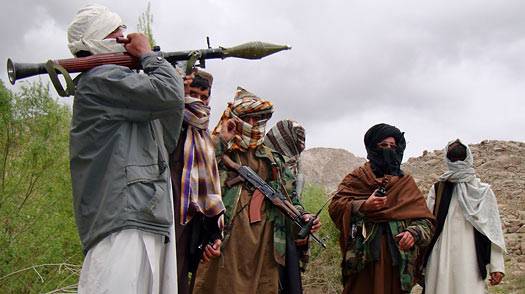Kabul: In one of the first tests of his leadership, the head of Afghanistan’s Taliban militants is moving aggressively against a breakaway faction in the south of the country, according to Afghan and Taliban officials.
Mullah Akhtar Muhammad Mansour, who assumed leadership of the Taliban this summer, has sent hundreds of fighters on motorcycles in the past two weeks to Zabul Province to battle forces loyal to Mullah Mansour Dadullah, who has publicly refused to pledge allegiance to the new leader, the officials said.
The two factions have since been fighting with no clear conclusion in sight. The latest skirmish on Saturday, which lasted for an hour and involved heavy weapons, left at least five people dead on each side, Ghulam Jilani Farahi, the province’s security chief, said on Sunday. Ten of Mullah Mansour’s men were detained by Mullah Dadullah’s forces, a member of the Taliban in Zabul said on condition of anonymity, fearing reprisals for sharing details of the group’s infighting.
Mullah Mansour was appointed the Taliban’s leader days after the death of the previous chief, Mullah Muhammad Omar, which had been kept secret for two years, was confirmed in July. Mullah Mansour has been trying to consolidate power and keep the group united in the face of dissent in the ranks as well as encroachment from Islamic State affiliates on its turf.
Already, Mullah Omar’s brother and son have refused to pledge allegiance to the new leader, questioning the transparency of the process that led to his appointment. Delegations of Afghan and Pakistani religious figures and tribal elders have been working to resolve the situation for weeks in the Pakistani city of Quetta, where Mullah Mansour and much of the Taliban leadership have been based for years.
While the Taliban have long denied reports that some of their factions were defecting to join the Islamic State, also known as ISIS or ISIL, it is clear that they are feeling pressure from the group, which has taken over large parts of Iraq and Syria. In June, Mullah Mansour, who was at the time the Taliban’s deputy leader, sent a letter to Abu Bakr al-Baghdadi, the leader of the Islamic State, warning against creating “multiplicity in the jihadist ranks in Afghanistan.”
More recently, a Taliban spokesman acknowledged the presence of Islamic State affiliates in eastern Nangarhar Province who had been challenging the Taliban’s authority in the area.
“By the grace of Almighty Allah and with the persistent support of the local people, most of the areas occupied by them were liberated quickly,” said the spokesman, Zabihullah Mujahid.
Mullah Dadullah comes from the Kakar tribe, like most residents of the districts of Khak-e-Afghan and Daichopan, where he has established a base. The Taliban official in Zabul said that the mullah recently assembled clerics, commanders and tribal elders and told them that Mullah Mansour was working in the interests of Pakistan, which has long been accused of using Afghan militants as proxies.
A furious Mullah Mansour instructed the Taliban shadow governor for Zabul to warn Mullah Dadullah to leave the province, according to Haji Assadullah Kakar, a member of the provincial council in Zabul. When Mullah Dadullah refused, Mullah Mansour sent his fighters.
Mr. Kakar said the Taliban had been trying to move Mullah Dadullah away from the protection of his tribe, so that it “would be easy to finish him elsewhere.” But, he said, the tribesmen saw through the ploy and were now fighting to protect him.
It is not the first time that Mullah Dadullah has caused headaches for the Taliban leadership. When his brother, Mullah Dadullah Akhund, the Taliban military commander known for his brutality, was killed by coalition forces in 2007, the younger Dadullah accused Mullah Mansour of indirect involvement, according to Mr. Kakar. He then ran afoul of the Taliban’s leadership council for the killing of two of his brother’s bodyguards on charges of involvement in his death, Mr. Kakar said. Mullah Omar ordered Mullah Dadullah to be stripped of his military duties. He was arrested by Pakistani authorities in 2008, and made his way back to Afghanistan only after his release in 2013.
There have been indications that Mullah Dadullah’s fighters are sympathetic to the Islamic State, which has added to the tensions with Mullah Mansour, officials say. In many of the battles in Zabul, fighters believed to be tied to the Islamic State have sided with Mullah Dadullah’s fighters, according to Haji Momand Nasratyar, the district governor of Arghandab in Zabul Province. And in recent weeks, Mullah Dadullah has tried to extend his reach into Arghandab, where fighters for Mullah Mansour are based.
“The Taliban who belong to Mullah Mansour are not happy to let ISIS and Dadullah’s men come to Arghandab,” Mr. Nasratyar said.
Courtesy The New York Times






